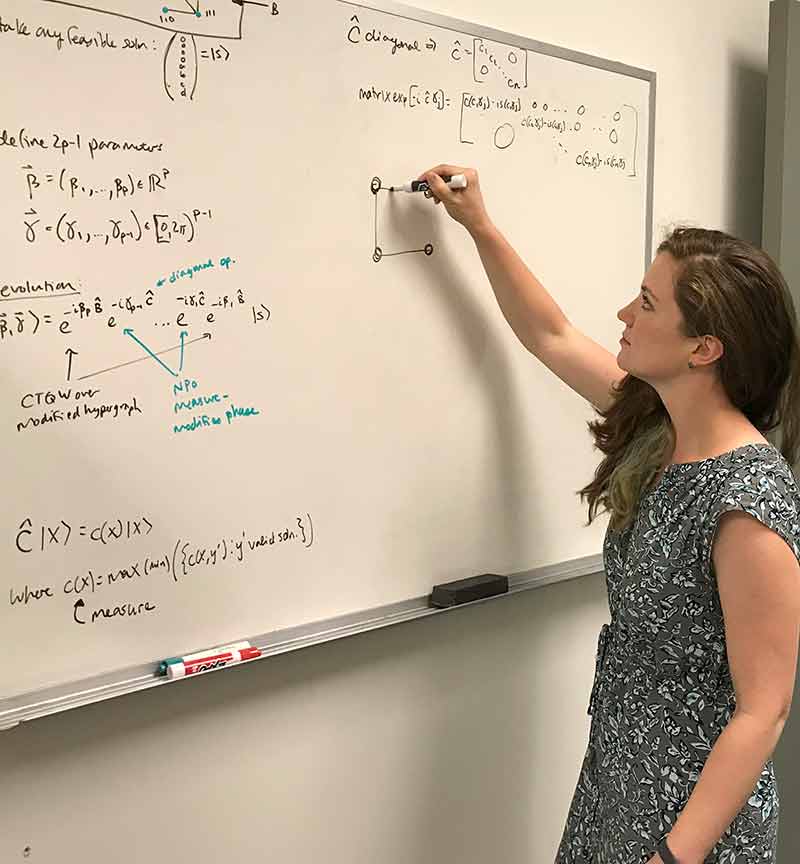Meet a Participant: Rebekah Herrman

Rebekah Herrman is a doctoral student of mathematics at the University of Memphis. During her internship with the National Science Foundation’s Mathematical Sciences Graduate Internship Program she conducted research in continuous time quantum walks.
Doctoral student spends time ‘walking’ into mathematics
Rebekah Herrman was interested in mathematics in high school, but she was uncertain if it would be her major when she entered college. She continued taking mathematics courses as an undergraduate. Inspired and encouraged by her academic adviser, Herrman realized her passion for mathematics would be her career.
Now a doctoral student of mathematics at the University of Memphis, Herrman specializes in the mathematical branch of combinatorics, focusing on graph theory. Combinatorics studies the combinations or counting of objects and the mathematical relations that characterize their properties. Graph theory is the formal study of graphs.
Because of her interest in applications of mathematics that could have a direct impact on the future of scientific research, Herrman applied to the National Science Foundation’s (NSF) Mathematical Sciences Graduate Internship (MSGI) Program.
The NSF MSGI program offers research opportunities for mathematical sciences doctoral students to participate in internships at national laboratories, industries and other facilities. NSF MSGI seeks to provide hands-on experience for the use of mathematics in a nonacademic setting.
Herrman was paired with mentor Travis Humble, Ph.D., and stationed at Oak Ridge National Laboratory (ORNL), Oak Ridge, Tennessee, in the Quantum Computing Institute. Herrman began research on dynamic continuous quantum walks (CTQWs) on graphs, a subject close to her specialization in graph theory.
Traditionally, CTQWs have been used as a model in quantum computation, typically determined using static graphs. Herrman’s research was to simulate quantum computation using dynamic graphs that change as a function of time. Herrman was able to construct dynamic graphs and a set of CTQWs that were then used to simulate the quantum teleportation circuit. Overall, using CTQWs can offer advantages over traditional methods of computing, and they are useful for creating quantum algorithms.
Herrman appreciated the opportunity to expand her professional network, improve her technical writing and programming skills and conduct research in her academic area of interest.
“The research experience is unique in that one is able to learn about branches of mathematics that can be applied to real-world problems,” Herrman said. “Also, the opportunity to network with not only mathematicians, but other scientists, was extremely valuable.”
Herrman returned to the University of Memphis to complete her doctoral degree. She has continued to collaborate with her mentor from the program to publish the results of their research.
The NSF MSGI Program is funded by NSF and administered through the U.S. Department of Energy’s (DOE) Oak Ridge Institute for Science and Education (ORISE). ORISE is managed for DOE by ORAU.


